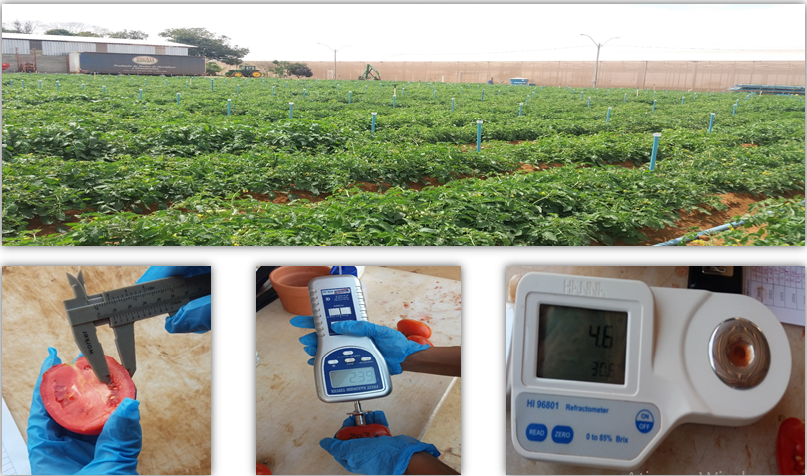
Published 2020-07-22
Keywords
- genetic parameters,
- processed tomato,
- Solanum lycopersicum
How to Cite
Copyright (c) 2020 Mariana Vieira Nascimento, Mylla Crysthyan Ribeiro Ávila; Monita Fiori de Abreu-Tarazi; Ana Paula Oliveira Nogueira, Luiz Fernandes Cardoso Campos, Abadia dos Reis Nascimento

This work is licensed under a Creative Commons Attribution 4.0 International License.
Abstract
Source of important vitamins, fibers, and minerals, the tomato (Solanum lycopersicum L.) stands out in the world agricultural scenario for its economic and social relevance and versatility. The Brazilian market is dominated by multinationals companies, and this market segment obtains cultivars from other countries, with genetics accurate to climatic conditions and cultivation method very different from those used in Brazil. As a result, the local cultivation of tomatoes plants becomes dependent on market variations and has required a material that has limited production efficiency. This study aimed to estimate genetic parameters from agronomic traits and to select industrial tomato lines using the selection index. A randomized block experimental design with three replications was used. Eightyfive industrial tomato lines from the germplasm bank of the Vivati Plant Breeding Ltda were evaluated. Each plot had 12 plants. The two central plants of each plot were evaluated. The evaluations were carried out using adapted morphological descriptors described in the guidelines for carrying out the distinguishability, homogeneity, and stability (DHE) tests of the Ministry of Agriculture, Livestock, and Supply of Brazil (MAPA). The genotypic determination coefficient (H2) of the traits related to fruit pericarp thickness, fruit firmness, fruit yield, average cycle, average number of fruits per plant, and soluble solids was high. The base index and the classic index presented the largest gain from selection for the fruit yield trait. Rank summation index and genotypeideotype distance index had the highest total selection gain values. The tomato lines PXT601 and PXT610 stood out as superior genotypes by the methods of direct selection and by selection indexes.





